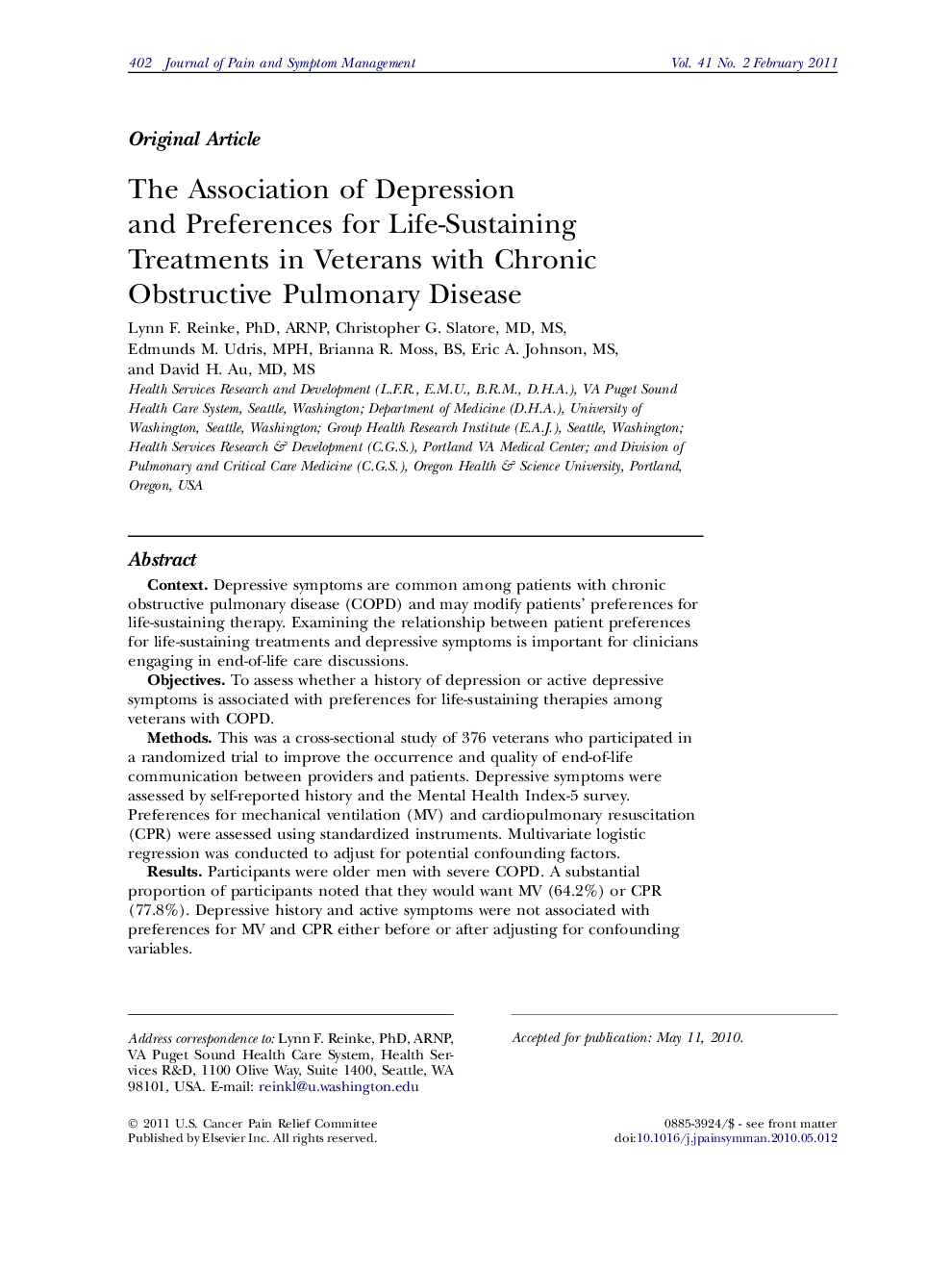| Article ID | Journal | Published Year | Pages | File Type |
|---|---|---|---|---|
| 2736173 | Journal of Pain and Symptom Management | 2011 | 10 Pages |
ContextDepressive symptoms are common among patients with chronic obstructive pulmonary disease (COPD) and may modify patients’ preferences for life-sustaining therapy. Examining the relationship between patient preferences for life-sustaining treatments and depressive symptoms is important for clinicians engaging in end-of-life care discussions.ObjectivesTo assess whether a history of depression or active depressive symptoms is associated with preferences for life-sustaining therapies among veterans with COPD.MethodsThis was a cross-sectional study of 376 veterans who participated in a randomized trial to improve the occurrence and quality of end-of-life communication between providers and patients. Depressive symptoms were assessed by self-reported history and the Mental Health Index-5 survey. Preferences for mechanical ventilation (MV) and cardiopulmonary resuscitation (CPR) were assessed using standardized instruments. Multivariate logistic regression was conducted to adjust for potential confounding factors.ResultsParticipants were older men with severe COPD. A substantial proportion of participants noted that they would want MV (64.2%) or CPR (77.8%). Depressive history and active symptoms were not associated with preferences for MV and CPR either before or after adjusting for confounding variables.ConclusionDepressive history and active symptoms among veterans with severe COPD were not associated with their decisions for life-sustaining treatments. Clinicians caring for patients with COPD should understand the importance of assessing and treating patients with depressive symptoms, yet recognize that depressive symptoms may not be predictive of a patient declining life-sustaining treatments.
